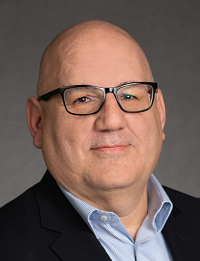By Joshua Burd
Owners of contaminated property in New Jersey may soon have a new financial tool at their disposal as they remediate the sites and prepare them for potential redevelopment.
Following a joint effort by four firms — including a developer, a law firm, an insurance brokerage and an underwriter — state regulators have cleared the way for a new alternative to the use of escrow accounts and other forms of financial assurance for environmental cleanups. Under newly approved guidelines, property owners may now use an insurance policy in order to secure their long-term obligations for remediating and monitoring a site, freeing up funds that would otherwise be frozen for decades at a time.

“It’s another tool in the toolbox,” said Dennis Toft, a veteran environmental lawyer at Chiesa Shahinian & Giantomasi PC in West Orange. “It reflects requests that a lot of developers were making and it’s a means of satisfying this obligation without tying up capital. That’s what we have and we just have to work to put it all together.”
The team responsible for securing the first-of-its-kind approval includes Toft and Richard Crooker, general counsel with Advance Realty Investors, along with Ironshore Environmental President Toby Smith, whose firm is now offering the policy, and Christopher Alviggi, a senior vice president and environmental practice group leader with NFP. They noted that, since the Site Remediation Reform Act of 2009, the state has required responsible parties to provide a financial assurance mechanism for properties that are being cleaned up and subject to long-term engineering controls, such as a cap or groundwater monitoring, to ensure those projects are maintained for at least 30 years.
As the group delved into the issue, they found that owners and responsible parties in New Jersey had placed $1.5 billion in escrow in connection with some 15,000 open cases at the time.

“That $1.5 billion was in our minds as we thought about: What might developers and other folks do if that was more available in a different form?” said Crooker, whose firm is based in Bedminster. “That’s what we were talking about.”
Insurance has always been an option under the 2009 law, they said, but crafting a policy that was both practical for underwriters and acceptable to the state Department of Environmental Protection has proven elusive. Stakeholders may find themselves “speaking different languages” when it comes to marrying environmental regulations with finance and insurance, Crooker said, creating a barrier to something that may be widely beneficial.
For his part, Smith noted that traditional credit risk underwriters have often shied away from the environmental sector. He also cited a lack of demand in past years for this type of insurance policy, “so to create a new product takes a lot of effort, it takes some resources and you want to make sure there’s enough critical mass to spend that time.”
That began to change in the last two to three years, when “a number of people have come and said, ‘We really don’t like this process of having to put all this cash into a trust or escrow.’”

“(That) has grown by orders of magnitude, so I think the timing was such that we were hearing it in the market,” Smith said. “And then having this solid team come to us and say, ‘We think there’s something here and here’s this solution,’ I think that’s really why someone — us in this case — really dedicated the time.”
The group began to revisit the concept about two years ago, as the industry at large was discussing a broader update to the landmark site remediation law, also known as SRRA. While Gov. Phil Murphy signed the so-called SRRA 2.0 law in August 2019, the team of professionals continued their discussions with the DEP when it came to the insurance question.
That approval came this past summer
“I think they had heard the message from the regulated community that this was an issue that people were concerned about and they really rolled up their sleeves and said, ‘OK, let’s see if we can come up with something that Ironshore can write and that we say meets our rules,’ ” said Toft, who chairs CSG’s environmental law group. “And that’s what we did over the course of a number of months and a number of exchanges of languages.”
While DEP approval is a major milestone, the team said there is still work to be done in order to unlock the full benefits of the insurance option. Until then, property owners may still be more comfortable with escrow accounts and other means of financial assurance.
“Everything comes down to the cost,” Crooker said. “And what I see it as is an evolving product. As Toby and the folks get more and more comfortable with the loss or the claim risk, the hope is you get more and more of a pooling effect and less and less of a collateralized risk type of thing. So I’m hoping that as it matures, it becomes an ever more attractive tool.”
Smith said there are advantages, even for early adopters. The policies will typically require collateral, he said, but that will translate into lower up-front costs when compared to what will go into a trust or escrow in order to secure those environmental obligations.
“For the majority there is a collateral requirement, but that’s going to depend on the financial strength of the guarantor,” he said. “But whatever it is, it’s going to be less than 100 percent (of face value) … So it’s freeing up capital that would otherwise be paralyzed on sidelines.”

Alviggi noted that “the plan was and is to roll this out for the greater good” — even though the product is currently exclusive to Ironshore — “because capital is capital and I think we all agree that dead capital doesn’t do anybody any good.” And he was quick to point out that having Smith and Ironshore on the team “helped us immensely, because at the end of the day he has the ability and the authority to make the decisions when it comes to amending the policy form to fit the DEP requirements or requests.”
Also critical were Toft’s standing with regulators and Crooker’s leadership as the client, which he said provided a focal point for each of the three service providers.
“It was a heavy lift, no doubt, but we’re all in this community, we all are active in New Jersey real estate, especially brownfield real estate, and thankfully Dennis as the lawyer has a great relationship with the DEP,” Alviggi said, adding: “It was a true partnership and collaboration in order to get us to this point, because without collaboration, you have nothing.”










